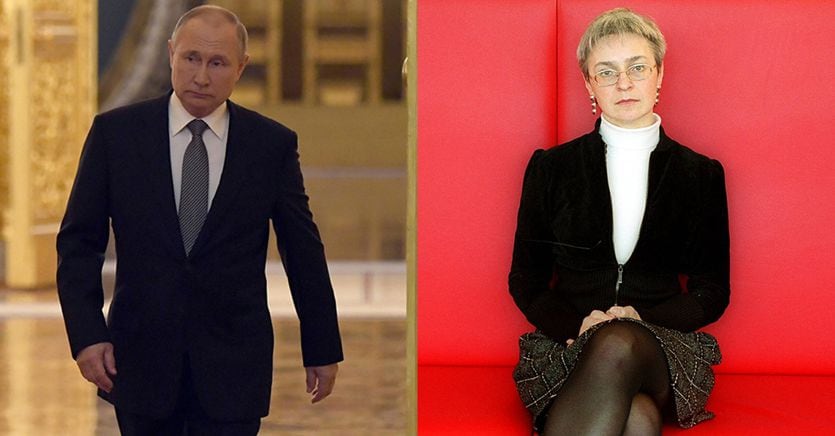According to Putin, Anna Politkovskaya was known above all abroad and little in Russia, outside the circles for the defense of human rights, and had no “political influence”. Assuming that was true, can we think that Putin’s reputation in front of the world did not matter at all? And are we authorized to believe that the elimination of another great opponent, the former spy Aleskandr Litvinenko, which took place in London shortly after – on November 26 of the same year – was always a coincidence or perhaps another spite of the president? All with the elections in sight.
A writer and a human rights activist
Graduated with a thesis on Marina Tsvetaeva, the poet who ended up committing suicide in a miserable hut in Elabuga, on the Kama River, during the Stalin years, Anna Politkovskaya was, as her husband and colleague Aleksandr said, something more than a journalist, a writer and a human rights activist. In her she always keep her gaze up to ordinary people she can be compared to the Nobel Prize winner Svetlana Aleksievič, even if her lyrics are characterized by a much higher rate of indignation and accusation. In the introductory note cited above, she writes: “The political analyzes of you are made by political scientists. I am a human being among many, a face in the crowd of Moscow, Chechnya, St. Petersburg or any city in Russia. This is why mine is a book of passionate notes, on the sidelines of life as it is lived today in Russia. Because for the moment I can’t take a step back and dissect what has been collected, as it should be if you want to analyze a phenomenon. I live life, and I write what I see ”.
Novaya Gazeta
Putin’s Russia is a book that first appeared in England in 2004 with Harville Press and then in various countries including Italy for the translation of Claudia Zonghetti, the Slavist who also translated the work of Vasilij Grossman, always for Adelphi, and The Karamazov Brothers for Einaudi. In Italy, before the murder, another Politkovskaya title was released, Chechnya. The Russian dishonor (Fandango, 2004). The rest with the great clamor aroused by death. Even in Russia, the journalist was known for her reports on the violation of human rights in the Second Chechen War, the villages burned, the cities razed to the ground, the atrocities and torture, committed by the Russian Army, accused of racism and nationalist spirit for don’t say neo-Nazi. The reports were published in Novaya Gazeta, a heroic opposition newspaper, now completely silenced, whose director, Dmitry Muratov, won the Nobel Peace Prize. Born in New York, of Ukrainian parents (the mother was from Kerč and half Russian, the father of Černigov), Politkovskaya signed with her husband’s surname, while hers is Mazepa, the same as the Cossack ataman portrayed by Gericalut and Delacroix during the famous punishment he had incurred when a husband found him in bed with his wife (the “cuckold” had him tied naked to a horse, then spurred to a gallop). Considered a traitor in Russia and a hero in Ukraine, Mazepa secretly discharged Tsar Peter the Great to side with the Swedes who guaranteed greater autonomy and rights for Ukrainians. This Ukrainian name-day echo, in addition to her birthday, also throws a new light today – in the middle of the war – in which to consider the figure of Politkovskaya.
